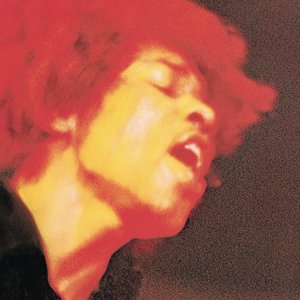Published on Feb 7, 1999
Believe it or not, it took me about ten years to really
appreciate
Electric Ladyland, the third album from The Jimi Hendrix
Experience that is considered their finest.
When I first listened to it, I thought it was far too cosmic and
bloated with self-indulgent pieces, and I filed it away deep in the
Pierce Memorial Archives. Every once in a while, I pulled it out
for curiosity, dusted it off, listened to it – and found that my
opinion hadn’t changed that much.
Finally, I decided recently to give thing a knock-down,
drag-em-out listen, in order to try and find out just why some
people hold this album in such high regard. And after the smoke
cleared, my verdict was… nah, we’ll wait ’till later for that.
(C’mon, you don’t expect me to build up the tension and give the
ending away this early in the review, do you?)
Hendrix had been slowly moving away from the rock motif that he
created on
Are You Experienced (one of these days, we’ll get to that
album here), and began a more cosmic look at music and tonality on
Axis: Bold As Love. Although there were still enough catchy
rock riffs on that one, it spelled the beginning of a constant
pattern with Hendrix: not being satisfied with what he had created
before. Up until his death in 1970, it seemed like Hendrix wanted
to conquer new boundaries in music.
Electric Ladyland symbolized the knocking over of several of
those boundaries. There was enough rock music on this one to please
the early fans (“Crosstown Traffic,” “All Along The Watchtower,”
“Little Miss Strange”), all of which hit the mark pretty well.
There was also the further signs of Hendrix’s wish to return to a
more bluesy side of his music. Following a pattern he started with
“Red House,” Hendrix gets into both a more rootsy blues sound
(“Voodoo Chile”) as well as a bit of r&b (“Come On (Part I)”),
all of which really works for Hendrix. Especially interesting are
the jams that Hendrix gets into on “Voodoo Chile,” where it sounds
like he’s pouring his whole being into the guitar.
Not everything works as well on
Electric Ladyland, though. The more cosmic portions of the
album – “1983 (A Merman I Should Turn To Be)” and “Moon, Turn The
Tides… Gently, Gently Away” – are just too far out and
unstructured to hold any hope of a promise. Maybe these pieces were
really the birth cry that would become the infmaous performance of
“The Star-Spangled Banner” at Woodstock, but in this context, it
sounds like so much studio noodling. I also question why two
different movements of “Rainy Day, Dream Away” were included when
one would have been just fine (the latter one is titled “Still
Raining, Still Dreaming”).
But there are pleasant surprises on
Electric Ladyland, in the form of “Gypsy Eyes” and “Burning
Of The Midnight Lamp,” two songs that could well be the
undiscovered jewels of Hendrix’s career. Both capture different
sides of Hendrix the songwriter and the musician, but they both
show how interrelated the sides were.
And then, there’s “Voodoo Chile (Slight Return)”, which any
diehard Hendrix fan knows probably note-for-note. It is a great
performance that is the ultimate climax to this album, and it shows
why it’s considered one of Hendrix’s best performances ever.
Still, I’m not completely convinced that
Electric Ladyland is Hendrix’s finest hour. I’m not denying
that there are some great performances on this album – cripes,
there are more highlights on this one 60-minute album than some
bands ever have in their careers. But the album does show Hendrix
the artist in a state of flux, not quite sure which direction he
wanted to go with his music. So, when in doubt, take all the roads,
and hope you don’t hit too many dead-ends. Fortunately for Hendrix,
he hit only one in this journey.
Electric Ladyland is an album that has to grow on you over
time, and the more you listen to it, the more you tend to
appreciate some of the unheralded performances. It’s good – but
it’s not Hendrix’s best, at least to my ears. So what is his best,
according to me? Well, that’s another review for another day…
